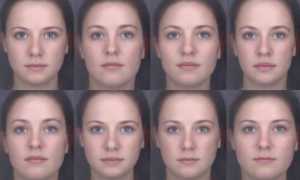12 Dec A Computer Can Predict Health From A Photograph Of A Face
MedicalResearch.com Interview with:
Dr Ian Stephen PhD
Senior Lecturer
Department of Psychology
ARC Centre of Excellence in Cognition and its Disorders,
Perception in Action Research Centre
Macquarie University, Sydney
NSW, Australia
MedicalResearch.com: What is the background for this study? What are the main findings?
Response: Since the 1990s, the dominant view of attraction in the scientific community has been that it is an evolved mechanism for identifying appropriate, healthy, fertile mates. People who are attracted to appropriate, healthy, fertile people are more likely to have more, healthy offspring and therefore any genes for having these preferences will become more common. On the other hand people who are attracted to inappropriate, unhealthy, infertile people will be less likely to pass on their genes to the next generation, so genes for this attraction pattern will become less common. However, for this model to be correct, two things have to be true. First, we should be able to identify cues in the face and body that people find attractive/healthy looking. And second, these cues must be related to some aspect of actual physiological health. The first part of this is well established – cues like symmetry, skin color, body shape are all related to looking healthy and attractive. But there is much less research on the second part.
The computer modeling techniques that we use allowed us to build a model based on 272 African, Asian and Caucasian face photographs that identifies three aspects of physiological health – body fat, BMI (a measure of body size) and blood pressure – by analysing facial shape. We then used the model to create an app that predicts what different faces would look like if those individuals increased or decreased their fatness, BMI or blood pressure. We gave this app to some more participants and asked them to make the faces look as healthy as possible. We found that, to make the faces look healthy, the participants reduced their fatness, BMI and (to a lesser extent) blood pressure.
MedicalResearch.com: What should readers take away from your report?
Response: Our results have a number of implications. First, it shows that the facial cues that observers use to make judgements about the health of others are the same cues that predict physiological health, supporting the evolutionary account of attractiveness – people really do seem to be attracted to cues that are associated with health.
Second, it tells us that the computer was using some of the same cues that the human brain uses to make judgements of health.
Third, it means that a computer can predict aspects of health based just on a photograph of someone’s face. It’s early days at the moment, but we hope this technology could help with things like remote diagnosis of illness in the future.
MedicalResearch.com: What recommendations do you have for future research as a result of this study?
Response: It would be nice to see these techniques expanded to other areas of health. Could we use it to identify genetic illness, perhaps? These techniques also have the ability to analyse multiple facial cues at the same time, meaning that we can build more comprehensive models of attractiveness and health.
MedicalResearch.com: Is there anything else you would like to add?
Response: This was a collaboration between the lab here at Macquarie University in Sydney, with researchers at the University of Pretoria, University of St Andrews, and University of Nottingham Malaysia Campus.
MedicalResearch.com: Thank you for your contribution to the MedicalResearch.com community.
Citation:
Ian D. Stephen et al. Facial Shape Analysis Identifies Valid Cues to Aspects of Physiological Health in Caucasian, Asian, and African Populations, Frontiers in Psychology (2017). DOI: 10.3389/fpsyg.2017.01883
https://www.frontiersin.org/articles/10.3389/fpsyg.2017.01883/full
Note: Content is Not intended as medical advice. Please consult your health care provider regarding your specific medical condition and questions.
[wysija_form id=”1″]
Last Updated on December 12, 2017 by Marie Benz MD FAAD

